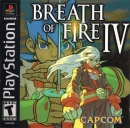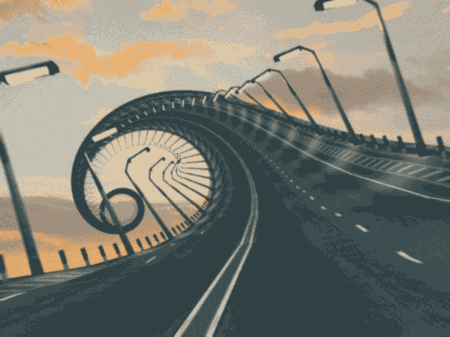Nuvendil said:
zorg1000 said:
Nuvendil said:
One thing's for sure, if you want that enhanced third party support, the Fusion isn't going to get it. It would be at an absurd power disadvantage to ninth gen hardware along with other complexities that would come from having a handheld and console as one device. The only aspect of Fusion that I think makes any sense is having similar OS's and having the systems be very similar in terms of how you code for them. That would allow for more fluidity in Nintendo's dev teams. Other than that, keep the two platforms separate. |
The point of the unified concept is that they can be more self-reliant and nullify the need for 3rd parties by significantly increasing their internal software output. 3rd parties are still welcome, they just aren't the main focus, plus it will still likely get the strong support from Japanese devs since Nintendo has pretty good relations with them and indie support which Nintendo has been increasing relations with over the last few years.
It also wouldn't be one device, it would be a unified ecosystem, things like architecture, operating system, online infrastructure would all be the same but they would have multiple devices in different form factors that share the same games/apps similar to the way Apple does with their iOS devices like iPod/iPhone/iPad/Apple TV.
We could see something like Nintendo Fusion, a Wii U level handheld with a 5 inch, 480p screen, released Spring 2016 then in the Fall they release Fusion TV, a more poweful console version that plays all the same games but in 1080p with some extra effects. Then in Summer 2017 release Fusion Mini and Fusion XL, which are the same as the original handheld but with 4 inch and 6 inch screens. From that point do incremental upgrades every 1.5-2 years or so, upgrade the handheld line to 720p in fall 2018 then upgrade the console to 4k in fall 2019 then the handheld line again to 1080p in fall 2020. Something like this to keep hardware sales from faltering and allowing Nintendo to continue pumping out games for a single unified ecosystem.
|
What I hear people talk about the most is 1 device, so pardon my statement if that's not what you think.
I highly, highly doubt we will see Nintendo start producing itterations that are any significant improvement that quickly. The business model that phone manufacturers use for that is not present in the console market, it wouldn't be sustainable. And this whole "all games on both platforms" presumes that the demographics and expectations of Nintendo's handheld and console markets are the same. Given the sales of their device lines, I would say that this is clearly not the case. I think we will see Nintendo continue to work towards similar development environments on their platforms to allow for fluidity in their development teams, but I can almost guarantee you that there will remain largely a wall of segregation between the platforms because console and handheld games are not the same and the domagraphics do not overlap as much as people seem to insist. And power *does* matter to a degree. If Nintendo releases a home console that just upscales Wii U games in 2017, it will do extremely poorly. The sheer ammount of negative press would dwarf the Wii U's poor reception and the sales would tank.
I honestly believe that we will see Nintendo's next handheld and console launch as separate devices with a broad power gap in 2017. The development environments will be more similar, but the devices will be very different and the bulk of each platform's library will be exclussive to that platform.
|
I'm basing it more on Iwata's recent statements, who said with a unified ecosystem they could potentially increase the number of form factors.
Well they did just release New 3DS, so Nintendo isnt against the idea of incremental upgrades mid-gen. New 3DS has a faster CPU, more RAM and better 3D, isn't that essentially what phone upgrades do? Mildly better processor, more RAM, higher resolution.
Most of Nintendo's franchises have seen success on both handhelds and consoles. 2D/3D Mario, 2D/3D Zelda, Mario Kart, Smash Bros, Donkey Kong, Kirby, Yoshi, Fire Emblem, Pokemon, Animal Crossing, Metroid, Paper Mario, Mario Sports, Mario Party have all been successful on both types of devices. I agree that some are more suited for one or the other, something like Pokemon or Animal Crossing might be more suited for handhelds and big open-world games like Zelda or Xenoblade might be more suitable for consoles but the fact is that they are completely playable on either form factor so it comes down to how u would personally want to play them. Also with cross-buy/cross-save and allowing the handheld to act as a gamepad for the console when synced together, Nintendo can create ways to make owning both a worthwhile investment.
Ya just like Wii, which was a small leap over Gamecube, sold poorly and had a ton of negative press.......oh wait, it sold over 100 million, more than the powerful HD consoles with full AAA support, and was the most profitable console ever. Now obviously I'm not suggesting this device would sell Wii numbers, but it doesn't have to. Nintendo could realistically sell something like 50-60 million of the handheld and 20 million consoles are post a healthy profit.
With this strategy Nintendo can increase software output and will no longer need to release 2 installments of every franchise meaning Nintendo can start creating more new ip and reviving old ip. For example, Nintendo won't need to release MK9 on the handheld then 2 years later release MK10 on the console, instead they can make one that's playable on both then move on to something else like revive F-Zero or a new racing ip with a different play style, something like a cross between Crazy Taxi and Need for Speed, while continuing to support Mario Kart with DLC and Amiibo support. Same goes for other teams, no need to release NSMB3 then 3-4 months later release NSMBU2, they can just create one bigger better game that truly innovates on the 2D Mario formula.
Then consider R&D costs and hardware costs. I'm guessing it's much cheaper to create a console using similar components as the handheld than it is to create a powerful PS5/XB4 level system. I think Nintendo is better off releasing a sub-$200 console than a $400 powerful console that still fails to get AAA support. Then if the powerful console does sell poorly, the games are going to suffer by being on a 15-20 million install base instead of the 70-80 million install base of the handheld+console.
Overall I see this benefitting Nintendo more than it harms them, a more streamlined hardware/software approach that minimizes costs while maximizing profits, continue to support and expand on DLC & Amiibo, then continue to attract new customers thru expanding businesses like licensing out ip for movies/series and QoL. If Nintendo executes this strategy correctly then they should see a lot of success in the next 5-10 years.






















































